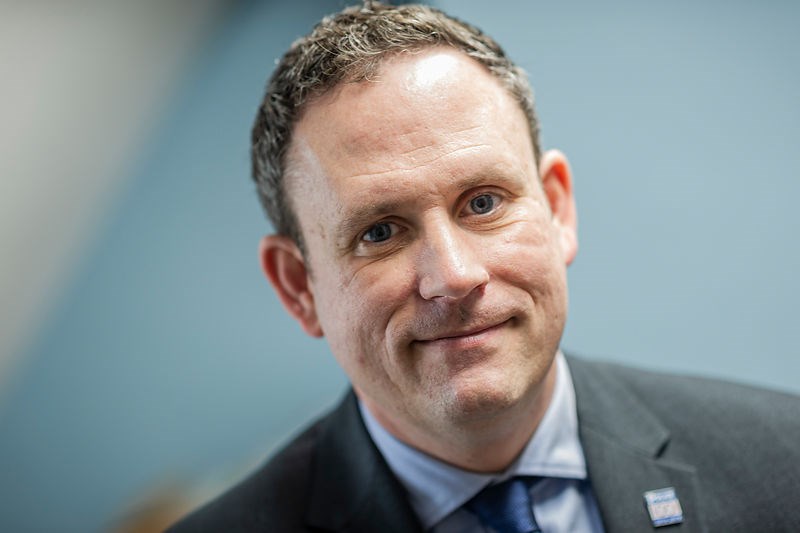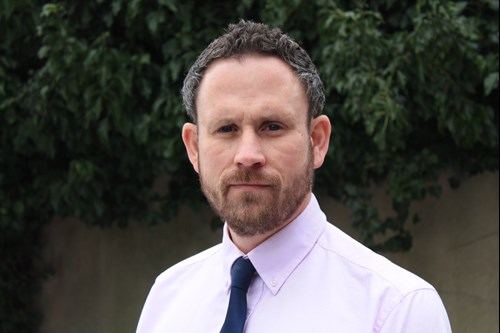There needs to be a public conversation on what the Government and Public wants the Police Service to concentrate on
24 March 2022


There needs to be a public conversation on what the Government and Public actually wants the Police Service to concentrate on, Norfolk Police Federation has said.
Andy Symonds, Federation Chair has responded to comments from the new head of Her Majesty’s Inspector of Constabulary, Fire and Rescue Services.
Andy Cooke told MPs this week that up to 40% of officers’ time is taken up on mental health calls.
Mr Cooke told the Home Affairs Select Committee yesterday: “An awful lot of Police Officers' time is taken up looking for children missing from home and absent from care.
“If that's what the public and Parliament want Policing to do, that's fine. But you must bear in mind while they're doing that, they're not doing other things that they should be doing, like detecting crime.
“With the wide scope that Policing has, in my view there needs to be a decision made in relation to what we want from our police service moving forward, and whether other agencies need to step into some parts of that sphere.”
Andy said: “I have long called for an informed open debate with the public we serve and Government about what the people we serve want from their police service. We need a Royal Commission into policing so that changes are evidence led as well as taking full account of the views of those we serve.
“The police service over a number of years have become the band aid for most of society’s woes. One of the biggest issues we face as a police service is the tsunami of calls for service we get to help, support and deal with mental health people who have mental health issues.
“We are not the correct service to be called upon in the majority of these circumstances. When we do get involved and use powers under section 136 of the Mental Health Act then we are inevitably stuck at the hospital waiting for an assessment team to be constituted to make an assessment on the patient.
“This means these officers are not out preventing and detecting crime. They cannot visit the victim of a crime to take a statement, collect evidence and offer that re-assurance and do all of the other elements of policing demands of us.”
Andy added: “Who else do members of the public call when someone is having a mental health crisis? Most services close at 5pm on weekdays and are not available over the weekend.
“Of course we should be called if a crime is being committed or the person in crisis may cause harm to others or themselves. But when we do it means we are left holding the baby until other services become available to take on the responsibility.
“These services have seen years of austerity which has meant their services have been stripped back meaning the demand falls to the police to pick up. Police officers see the crisis points at the end of the journey and mental health services need investment so that people do not get to that crisis point which needs the police to step in and help.
“Officers are not properly trained in mental health, yes we’re given some light touch inputs and watch online training packages on how best to deal with someone in crisis. But we’re not the right professionals to help.
“If you then add in that we also spend lots of police resource in searching for missing people and children that are missing from home or absent from their care setting. We’re seeing officers being deployed to cardiac arrests as the ambulance ring us to ask if we have any spare officers to send as they don’t have any ambulances. Most likely as they are either at jobs themselves or stuck outside of a hospital waiting to hand over a patient.”
Andy concluded: “You also have to take into account that we also police public events such as football matches, music concerts, festivals and much more. All of these demands severely impact on our ability to prioritise things such as preventing and detecting crime be that online crimes or more traditional crimes such as theft, burglary, assaults etc or stemming the flow of drugs. Or the local beat cop visiting vulnerable victims of recent crimes, patrolling their neighbourhood offering them re-assurance. If everything is a priority then nothing is a priority.
“If we were properly funded by Government and if the public and Government want us to continue to police and resource all of the things we currently do then the service we are able to offer becomes poorer. Signs of this are the charging rates/detections rates are at an all time low. Precenting and detecting crimes should always be our bread and butter but with us being so thinly spread we risk losing the confidence of the public in this respect. This is not police officers’ fault, they are trying their best to give an exceptional service as I know we do on lots of occasions.
“The ship of policing is being kept afloat directly because officers go the extra mile and are working their fingers to the bone. Placing themselves in harm’s way both physically and mentally to deliver the best they can for the public they serve. However the Government cannot continue to rely on this as we’re seeing officers struggle physically and mentally due to the strains of the job.”



















